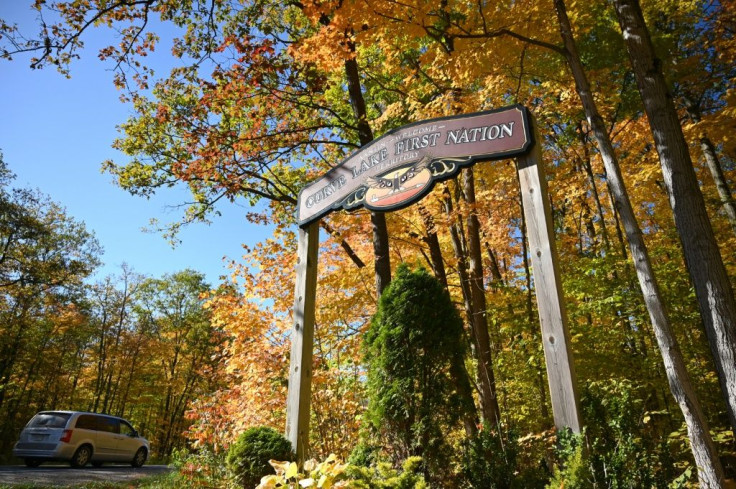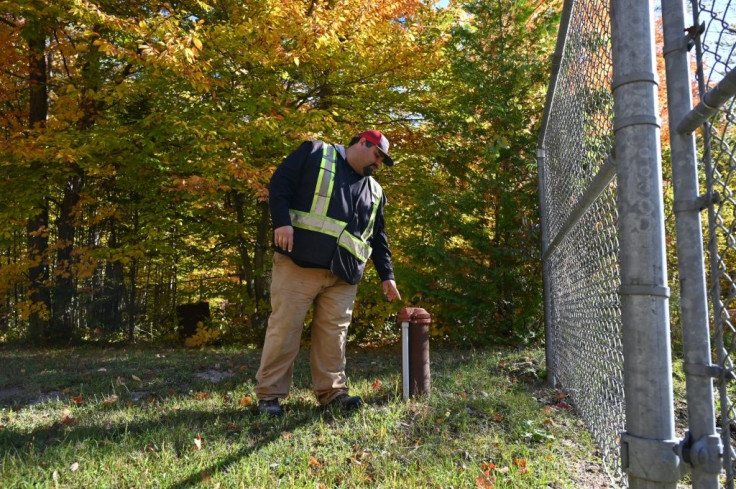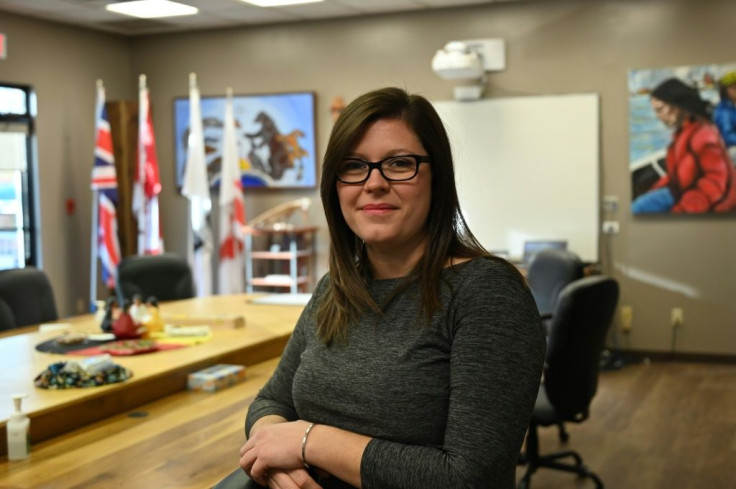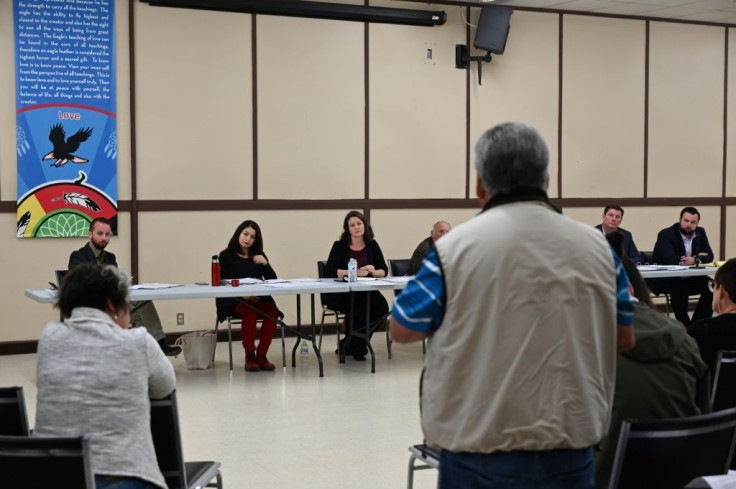Water Woes Bring Out Indigenous Vote In Canada

The stack of bottled water on Murray Whetung's kitchen floor is hard to miss, and emblematic of the lack of clean water in Canadian indigenous communities that Prime Minister Justin Trudeau promised to fix.
The 97-year-old resident of the Curve Lake First Nation can also drink tap water from a well, but it's running out and increasingly polluted by septic systems, making Curve Lake one of dozens of communities in Canada where the government has advised people to boil water before drinking.
Three decades ago, the federal government promised to build a new water treatment facility on the peninsula where Whetung lives hidden beneath an autumn canopy some 300 kilometers (186 miles) southwest of the capital Ottawa.
That's yet to happen, and he views with resignation the government's latest plan to pump water to the community from a nearby lake.
"We're hoping," Murray said, with a shrug and a chuckle.
Four years ago, indigenous people turned out in record numbers to vote Trudeau and his Liberal Party into office after he made addressing their concerns a priority.

Trudeau now faces a tough re-election challenge from Conservative candidate Andrew Scheer on October 21, and the indigenous Canadians who make up 4.9 percent of the population are expected to play a key role in giving him a second term -- or not.
Curve Lake residents say if the prime minister wants their support, he'll have to respond to the many iniquities faced by indigenous reserves, chief among them shortages of clean water.
"We are hoping to have some economic development. We are looking to build more houses, but all of those issues hinge on finding clean sustainable water that's in an amount sufficient to provide water to all of our community members," Emily Whetung-MacInnes, Whetung's granddaughter who was recently elected Curve Lake's chief, told AFP.
Several locals need dialysis, and the community lacks a laundromat, "but we can't have that sort of economic development because we don't have enough water to sustain those businesses," she explained.

'Water is life'
The Assembly of First Nations believes indigenous turnout could impact 63 swing electoral districts out of 338 nationwide.
At a town hall with the local candidates standing in the October 21 election, Curve Lake residents raised concerns over climate change, rundown housing, treaty rights, violence against indigenous women and a feud with non-indigenous weekenders over wild rice harvested from area lakes.
But access to potable water was the top issue.

"Water is life," commented Nicole Van Stone-Mascherin. Others at the meeting called the boil water advisories "a national disgrace."
Canada's Minister for Women and Gender Equality Maryam Monsef appeared at the gathering and touted the lifting of 87 out of 143 boil water advisories for indigenous communities since Trudeau's Liberal government took office.
"Within three years, every indigenous community in Canada will have clean water," she said, adding that nearly 500 projects have been completed or are underway.
Curve Lake's ageing system is able to clean many particles from water, but is getting too expensive to repair.
Still, it's better than other indigenous communities in Canada's north, where water is badly polluted.
Sovereignty or a say?
Chadwick Cowie, a University of Alberta graduate student studying indigenous voting patterns for his doctoral thesis, says indigenous people have historically not voted in Canadian elections because "they view themselves as sovereign and don't want to give legitimacy to a settler government."
"I was always told growing up that indigenous people can't change anything," said Cowie, who is himself indigenous.
But increasingly, they are wanting a say in electing a federal government whose policies have a direct impact on their day-to-day lives.
A record 62 indigenous candidates, including 27 New Democrats and 18 Liberals, are seeking election in the upcoming ballot.
Curve Lake was one of the first of 600 tribes across Canada to vote in a federal by-election in 1960 after the law was changed to enfranchise natives.
Support for the Liberals is strong among older natives, and Trudeau was "the first to stop putting band-aid solutions" on indigenous issues, Cowie said.
The prime minister received kudos for accepting a public inquiry which found that the disappearances and murders of nearly 1,200 indigenous women and girls since 1980 constituted "a genocide."
But his firing of Canada's first indigenous attorney general and appeal of a human rights decision mid-campaign that would have awarded billions of dollars for underfunded child-welfare services on reserves outraged many natives.
"Fixing systems to provide clean drinking water on reserves is also not moving fast enough," Cowie said.
© Copyright AFP {{Year}}. All rights reserved.





















